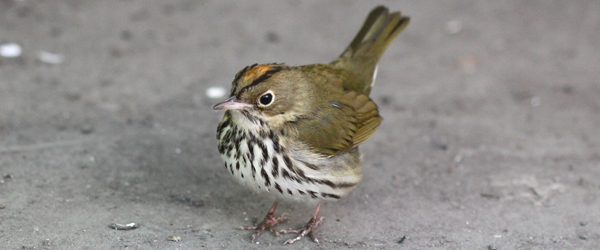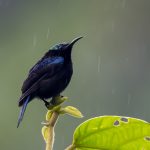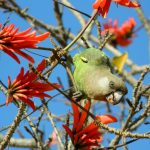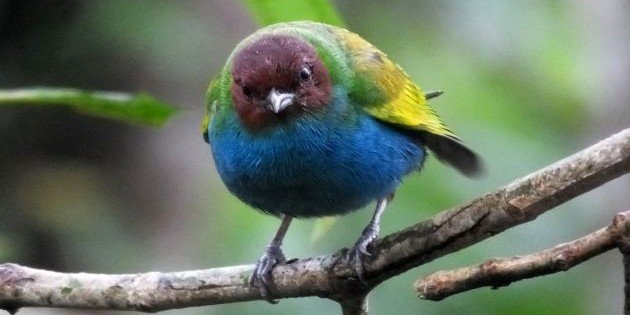Robert Frost, the four-time Pulitzer Prize-winning American poet, was able to find meaning in the most minor of topics in his poetry. Whether one prefers “Mending Wall,” “Stopping By Woods on a Snowy Evening,” or “The Road Not Taken” one will recognize that Frost could turn even the most mundane of events into an amazing poem. Frost’s “The Oven Bird,” which was written in 1916, follows the pattern of his more famous poems in that Frost finds much import in the simple “Teacher Teacher Teacher” song of the Ovenbird.
The Oven Bird
THERE is a singer everyone has heard,
Loud, a mid-summer and a mid-wood bird,
Who makes the solid tree trunks sound again.
He says that leaves are old and that for flowers
Mid-summer is to spring as one to ten.
He says the early petal-fall is past
When pear and cherry bloom went down in showers
On sunny days a moment overcast;
And comes that other fall we name the fall.
He says the highway dust is over all.
The bird would cease and be as other birds
But that he knows in singing not to sing.
The question that he frames in all but words
Is what to make of a diminished thing.
The importance Frost finds in the simple song of the Ovenbird is that it signifies the long, downward trend to fall. When one hears the song of the Ovenbird making “the solid tree trunks sound again” one can be sure that spring is gone, “early petal-fall is past,” and the dog days of summer have arrived. The green growth is covered with “highway dust” and “the other fall we name the fall” is well on its way. The Ovenbird “knows in singing not to sing” because there is no need to gussy up or prettify anything in middle of summer, perhaps because it would take too much energy for anything more than the simple “teacher teacher teacher” chant.
While the poem is ostensibly and literally about a bird and the seasons, metaphorically it seems more likely that Frost was talking about aging and maybe his own life. He certainly never used fifty-cent words when more simple ones would do so one could argue that he knew “in singing not to sing.” Frost was 42 years old when he wrote this poem, midsummer for a man who lived to be 89, and it is no wonder that he would wonder “what to make of a diminished thing.” He had already graduated from Harvard, married, fathered six children, been published, lived in England, returned to the United States, and was professionally well-established. What more could a man ask for? Of course, Frost went on to become the most successful American poet of his generation, to win four Pulitzer Prizes, to receive over forty honorary degrees, and to read at the inauguration of JFK. Not bad for “a diminished thing.”
…
If you liked this post and would like to browse the entire archive of poetry posts on 10,000 Birds please check out our Bird Poems page.
…












My favorite poet. Always a pleasure to read him
thanks
There is a good discussion of this poem in Jonathan Rosen’s Life of the Skies.
i am currently studing Robert Frost poems in high school and I think this poem is about the natural diminishing of nature with the change of seasons into fall and man’s diminishing of nature-“highway dust” may refer to industrialisation and man’s waste that also causes nature to be reduced.
I have just found the Ovenbird in my yard this fall—-first time sighting and he has been back for 10 days in a row. Cute little guy I’m happy to have him until he migrates. That’s how I got to this web site and have enjoyed reading your take on it’s meaning Corey, thank you, it has helped me understand that which I have trouble with—poetry not my field of study. Funny I am also married and have two indoor cats and had lived in upstate NY for many years before moving south/SC. Thanks again.